Dear Readers:
During this holiday season, the editors at Hearing Health & Technology Matters (HHTM) are taking some time off. However, we are not leaving you without anything to read on our blog this week. Instead, we are publishing a special holiday edition filled with what we call our Readers’ Choices.
Our Readers’ Choices featured this week are the posts published on each of our individual blogs that drew the largest number of viewers during the year. Whether or not you have read these Readers’ Choice posts before, we think you will enjoy them.
Best wishes for a Happy & Healthy New Year!
CUPERTINO, CALIFORNIA — Apple this week announced a number of new software updates designed for people with disabilities.
Among the new updates include several relevant to hearing health.
Hands-Free Calling for MFi Hearing Aids
In a significant update to the Made for iPhone (MFi) hearing devices program, Apple is said to be adding support for “new bi-directional hearing aids”. The microphones in these new hearing aids will “enable those who are deaf or hard of hearing to have hands-free phone and FaceTime conversations”.
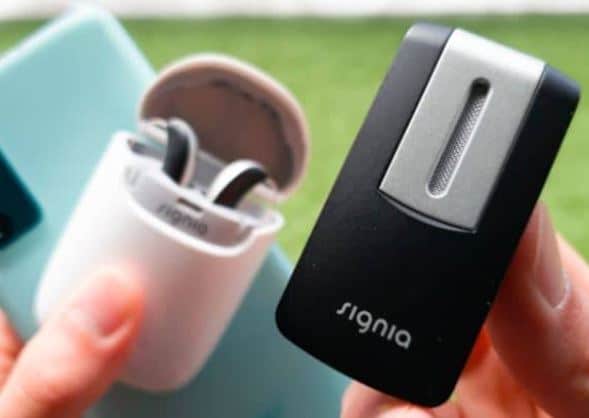
Example: Signia Streamline Mic allows a user to pair Bluetooth connected hearing aids to any Bluetooth connected device for hands free use.
Currently, most hearing aids still require an intermediary streaming device to achieve truly hands-free calling with iPhone and Android phones. According to Apple, the next-generation models from MFi partners will be available later in 2021.
Non-MFi hearing aids, such as the Phonak Paradise and Unitron Blu, are among the few devices that allow users to answer and receive calls via Bluetooth entirely hands-free without the use of an intermediary device.
Audiogram Support Feature
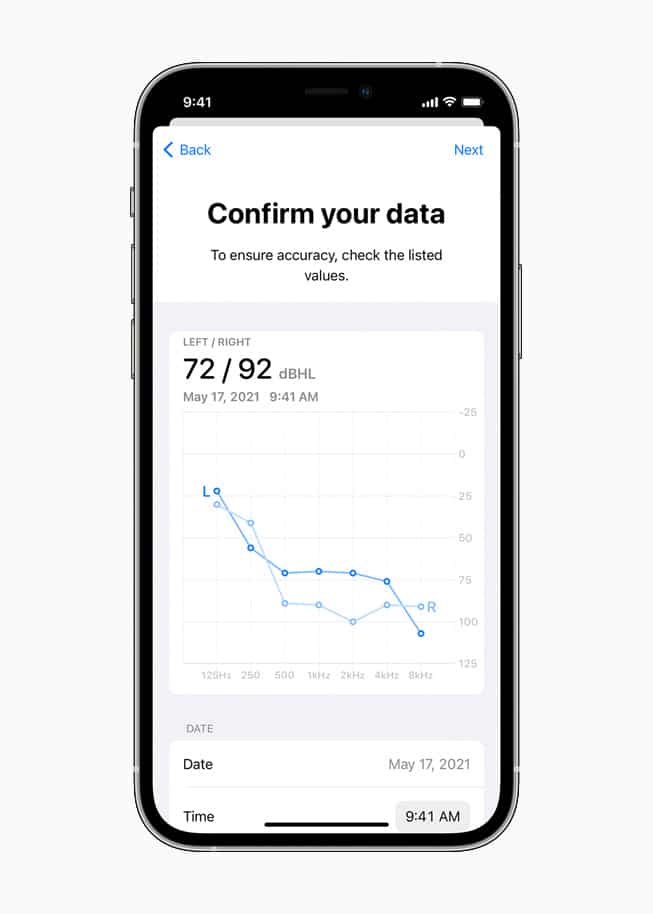
Headphone Accommodations will recognize audiograms imported from a paper or PDF and display the results in a chart.
Apple is also bringing support for recognizing audiograms — charts that show the results of a hearing test — to Headphone Accommodations.
The Headphone Accommodations feature, added in 2020, is designed to amplify soft sounds and adjust certain frequencies for an individual’s hearing to improve the listening experience for the user.
With the new update, users can quickly customize their audio with their latest hearing test results imported from a paper or PDF audiogram.
Background Sounds for Tinnitus Sufferers
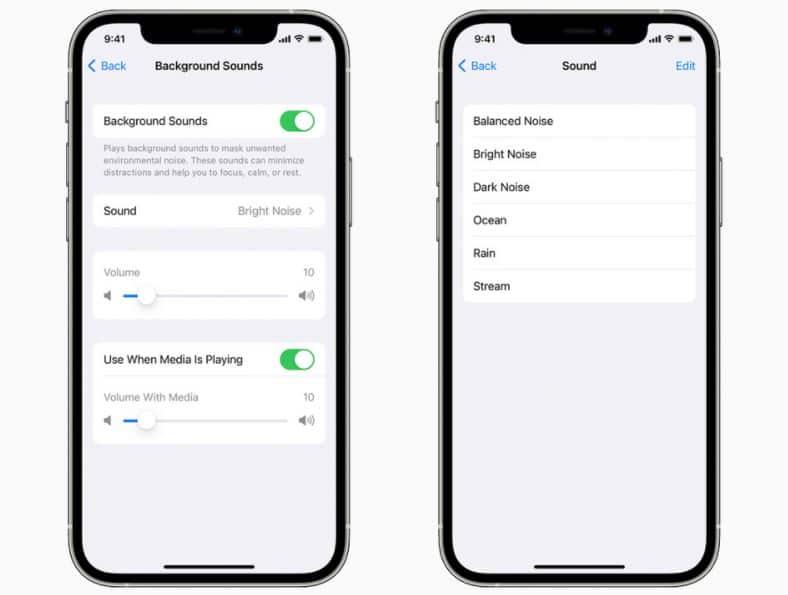
Background sounds, such as ocean, rain, and stream sounds, help minimize distractions and help users focus, stay calm, or rest.
Apple Unveils SignTime; New Cochlear Implant Memoji
Beginning on May 20th, Apple will launch a new service called SignTime. This enables customers to communicate with AppleCare and Retail Customer Care by using American Sign Language (ASL) in the US, British Sign Language (BSL) in the UK, or French Sign Language (LSF) in France, right in their web browsers.
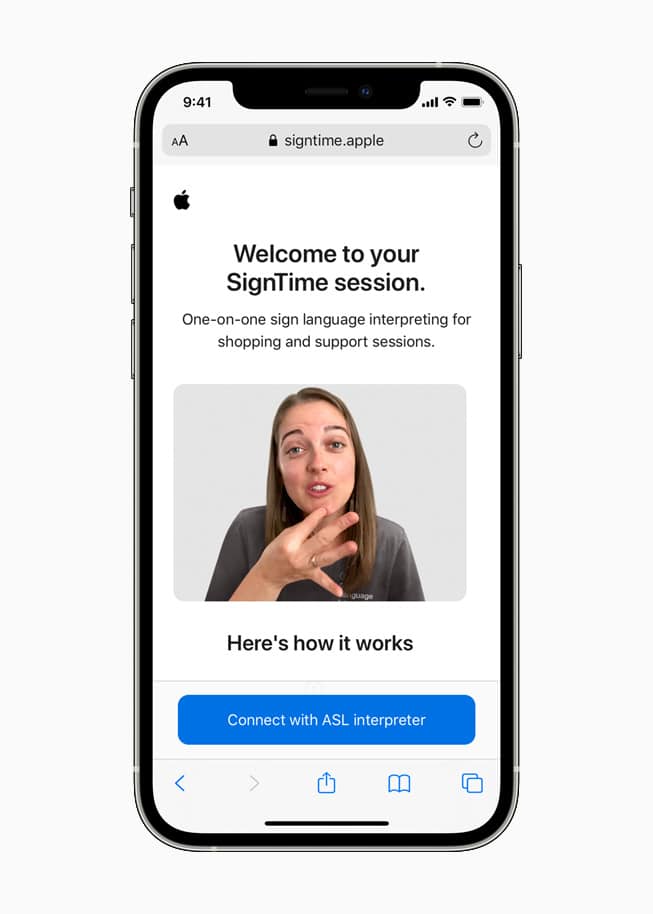
Customers visiting Apple Store locations can also use SignTime to remotely access a sign language interpreter without booking ahead of time. SignTime will initially launch in the US, UK, and France, with plans to expand to additional countries in the future.
“At Apple, we’ve long felt that the world’s best technology should respond to everyone’s needs, and our teams work relentlessly to build accessibility into everything we make”
–Sarah Herrlinger, Apple’s senior director of Global Accessibility Policy and Initiatives
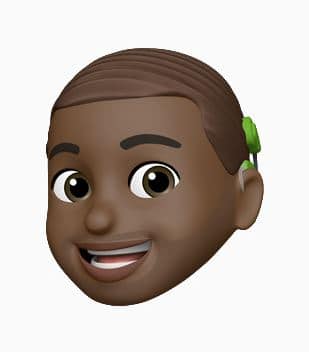
New cochlear implant memoji
“With these new features, we’re pushing the boundaries of innovation with next-generation technologies that bring the fun and function of Apple technology to even more people — and we can’t wait to share them with our users,” commented Herrling.
Apple also announced new ‘Memoji’ customizations to “better represent users with oxygen tubes, cochlear implants, and a soft helmet for headwear”.
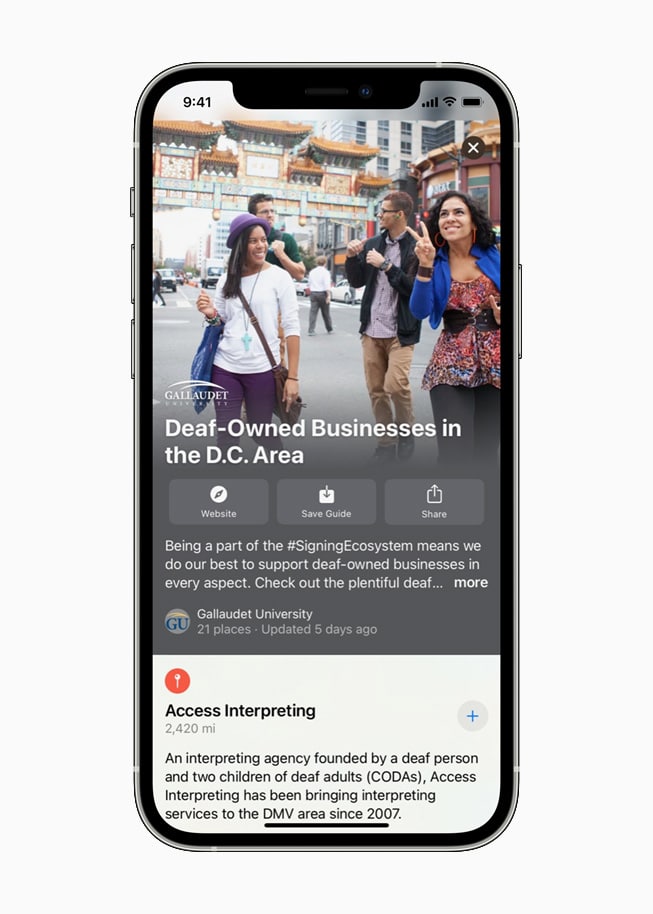
New guides in Apple Maps from Gallaudet University.
Apple Maps will now feature guides from Gallaudet University, the world’s premier university for Deaf, hard of hearing, and Deafblind students, that help connect users to businesses and organizations that value, embrace, and prioritize the Deaf community and signed languages.
*To see the full list of accessibility features in Apple’s latest update, click here.
Source: Apple






